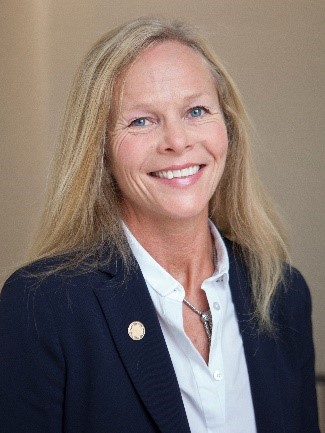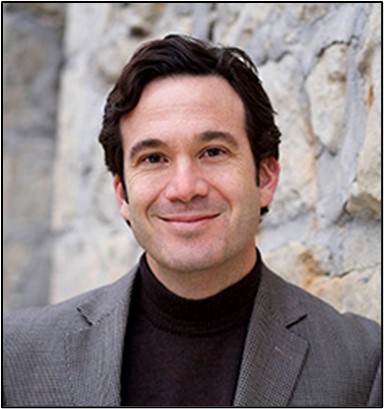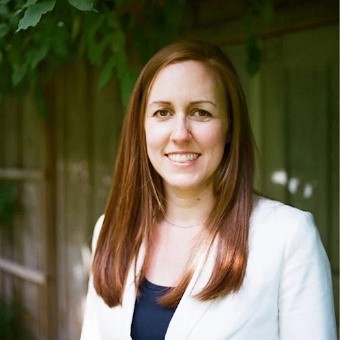CONFERENCE SPEAKER BIOS

Glenn Fox is an agricultural and natural resource economist. He was a member of the faculty in the Department of Food, Agricultural and Resource Economics at the University of Guelph from 1985 until his retirement in October of 2020. In 2010, Glenn was named a Fellow of the Canadian Agricultural Economics Society. He was named a senior research fellow of the Fraser Institute in 2013. He is a past editor of the Canadian Journal of Agricultural Economics and also of Current Agricultural, Food and Rural Issues, both published by the Canadian Agricultural Economics Society. For 10 years, he was the Research Program Director of the Agricultural Policy and Rural Development Research program in the University of Guelph partnership with the Ontario Ministry of Agriculture, Food and Rural Affairs. His teaching and research interests include the environmental economics of agricultural production systems, the economics of property rights and environmental stewardship, renewable energy policy, Austrian economics, environmental law and economic methodology. He is currently working on a book on the praxeology of science. He has served on the corporate boards of the Central Fund of Canada and Central Gold Trust. He currently serves on the Boards of the Canadian Constitution Foundation, the Energy Probe Research Foundation and the Canadian Justice Review Board.

L. Jane McMillan, PhD, is a professor of anthropology at Saint Francis Xavier University, Nova Scotia, and author of the award-winning Truth and Conviction: Donald Marshall Jr. and the Mi’kmaw Quest for Justice (UBC Press 2018).

David Natcher is a Professor in the Department of Agricultural and Resource Economics at the University of Saskatchewan. David currently holds a University of the Arctic Research Chair in Water, Energy, and Food Security, and is a Canadian appointee to the International Arctic Science Committee, and the Arctic Council’s Social, Economic, Cultural Expert Group.
Al Phillips is a private consultant. He has had extensive experience in the Canadian marketing research sector, where he focused on data collection design, qualitative and quantitative research methods and data analysis. He has provided analytical input in support of policy formulation for research institutes, private sector clients, and for government departments. Al has been researching the challenges to transportation and supply chains in thin markets and is a graduate of the University of Guelph where he received his M.Sc. in Agricultural Economics. He is an Associate of the University of Manitoba Transport Institute (UMTI) and is a retired Professional Agrologist (P. Ag.) in the Province of Manitoba.

Jill E. Hobbs is a Professor in the Department of Agricultural and Resource Economics at the University of Saskatchewan. Her research focuses on consumer behaviour, supply chain economics, and food policy. She has published widely on topics ranging from consumer responses to new food technologies, transaction costs in agri-food supply chains, public and private standards for food safety and food quality, the regulation of health foods, and more recently COVID-19 and food supply chains. She earned her Ph.D. from the University of Aberdeen in the UK, and holds an M.A. from the University of Calgary, and a B.Sc. (Econ) from Aberystwyth University, UK. Jill was appointed a Fellow of the Canadian Agricultural Economics Society in 2017.

Sean Alldridge <sean.alldridge@statcan.gc.ca> is an Economist in the Consumer Prices program at Statistics Canada. He is responsible for analyzing consumer price change and macroeconomic trends in Canada’s official CPI. His academic background includes a B.S. (Economics) and an M.A. in Economics, both from the University of British Columbia.

Professor Deaton is Professor and McCain Family Chair in Food Security in the Department of Food, Agricultural and Resource Economics at the University of Guelph. His research focuses on food security, land use, economic development, and environmental quality.
 Valerie Tarasuk is a Professor in the Department of Nutritional Sciences at the University of Toronto, cross-appointed to the Dalla Lana School of Public Health. Her primary research focus is household food insecurity. She has led several tri-council research grants to elucidate the scope, nature, and health implications of this problem in Canada, assess the effectiveness of community responses, and determine how public policies and programs impact food insecurity prevalence and severity. For the past decade, she has led PROOF, an interdisciplinary research program designed to identify effective policy approaches and mobilize knowledge to reduce household food insecurity in Canada.
Valerie Tarasuk is a Professor in the Department of Nutritional Sciences at the University of Toronto, cross-appointed to the Dalla Lana School of Public Health. Her primary research focus is household food insecurity. She has led several tri-council research grants to elucidate the scope, nature, and health implications of this problem in Canada, assess the effectiveness of community responses, and determine how public policies and programs impact food insecurity prevalence and severity. For the past decade, she has led PROOF, an interdisciplinary research program designed to identify effective policy approaches and mobilize knowledge to reduce household food insecurity in Canada.
 Brent Swallow is a Professor of Agricultural Economics at the University of Alberta in Edmonton, Canada. He has long experience with several of the international agricultural research centres. He lived and worked in Africa for 21 years. In the summer of 2021, he led the delivery of a University of Alberta certificate course on climate change and the economics of world food and agriculture.
Brent Swallow is a Professor of Agricultural Economics at the University of Alberta in Edmonton, Canada. He has long experience with several of the international agricultural research centres. He lived and worked in Africa for 21 years. In the summer of 2021, he led the delivery of a University of Alberta certificate course on climate change and the economics of world food and agriculture.
 Ryan Cardwell is a professor in the Department of Agribusiness & Agricultural Economics at the University of Manitoba. Ryan is president of the Canadian Council of the International Association of Agricultural Economists and is a member of the editorial board for the Canadian Journal of Agricultural Economics. Ryan’s research interests include the economics of food policy, international trade regulation, and foreign aid, with a focus on international food aid. Current research topics include understanding support for economic policies, the effects of tariff barriers on international food assistance, and the effects of regulation on productivity.
Ryan Cardwell is a professor in the Department of Agribusiness & Agricultural Economics at the University of Manitoba. Ryan is president of the Canadian Council of the International Association of Agricultural Economists and is a member of the editorial board for the Canadian Journal of Agricultural Economics. Ryan’s research interests include the economics of food policy, international trade regulation, and foreign aid, with a focus on international food aid. Current research topics include understanding support for economic policies, the effects of tariff barriers on international food assistance, and the effects of regulation on productivity.

Shaun Soonias is the Director, Indigenous Relations with Farm Credit Canada and is a proud member of the Red Pheasant Cree Nation in Saskatchewan, located in Treaty Six Territory west of the Battlefords. Shaun has 25 years of experience in social and economic development having held senior positions with the Saskatchewan Indigenous Economic Development Network, Saskatoon Regional Economic Development Authority, Federation of Sovereign Indigenous Nations, Saskatchewan Advocate for Children & Youth, University of Saskatchewan and Department of Justice.
Shaun is passionate about agriculture and what this sector means to Indigenous economic development and what Indigenous involvement means to this sector and the resiliency and wellbeing of Canada’s economy. Shaun has worked with First Nations, municipal, provincial, and federal governments on a number of key provincial and national strategies and legislative processes and continues to work towards Indigenous inclusion in the economy from employment to economic development.
 G. Cornelis van Kooten is Professor of Economics and Canada Research Chair at the University of Victoria. Previously he has been on faculty in Agricultural Economics at the Universities of Saskatchewan, British Columbia, and Nevada at Reno. He has more than thirty-five years of experience in natural resource economics, including agricultural and forest economics, land-use management, mathematical programming, and, most recently, the economics of renewable energy and climate. His interests range from agricultural and forest economics to development economics and computational economics. He has published more than 250 peer-reviewed journal articles and book chapters. His book with Erwin H. Bulte entitled The Economics of Nature (Blackwell, 2000) is considered a classic reference book for researchers in the field of wildlife and public land economics. His 1995 paper in the American Journal of Agricultural Economics on the uptake of carbon in forest ecosystems is the standard reference for work in the field of terrestrial carbon offsets. He is also the author of Climate Change, Climate Science and Economics (Springer 2013) and Applied Welfare Economics, Trade, and Agricultural Policy Analysis (U of Toronto Press 2021).
G. Cornelis van Kooten is Professor of Economics and Canada Research Chair at the University of Victoria. Previously he has been on faculty in Agricultural Economics at the Universities of Saskatchewan, British Columbia, and Nevada at Reno. He has more than thirty-five years of experience in natural resource economics, including agricultural and forest economics, land-use management, mathematical programming, and, most recently, the economics of renewable energy and climate. His interests range from agricultural and forest economics to development economics and computational economics. He has published more than 250 peer-reviewed journal articles and book chapters. His book with Erwin H. Bulte entitled The Economics of Nature (Blackwell, 2000) is considered a classic reference book for researchers in the field of wildlife and public land economics. His 1995 paper in the American Journal of Agricultural Economics on the uptake of carbon in forest ecosystems is the standard reference for work in the field of terrestrial carbon offsets. He is also the author of Climate Change, Climate Science and Economics (Springer 2013) and Applied Welfare Economics, Trade, and Agricultural Policy Analysis (U of Toronto Press 2021).

Alfons Weersink, is a Professor in the Department of Food, Agricultural and Resource Economics (FARE) at the University of Guelph. He has been at Guelph since completion of his PhD at Cornell University. His research focuses on the impact of new technology and government policy on the decisions made by farmers and the resulting impact on markets and the environment.

Duane Wilson joined Arctic Co-operatives Limited in 2008 in the capacity of Vice President of Merchandising and Logistics. A graduate of Carleton University, B.Comm (High Honours), prior to joining Arctic Co-op he served in various capacities with Federated Co-operatives Limited, most recently as the General Merchandise Marketing Manager for the Winnipeg Region. In the role of Vice President of Merchandising & Logistics, he oversaw the procurement and transportation needs of the Co-op System, a network of 32 autonomous community co-operatives in Nunavut, the Northwest Territories and Yukon.
Duane became involved in many of the Co-ops System’s efforts in the areas of environment, health and nutrition and he was a founding member of the Nunavut Food Security Coalition. The important place that the Co-op System plays in the business and political landscape of the Arctic has also afforded Duane the opportunity to forge relationships with leaders in industry, government and other key stakeholders.
During this time, the Co-op System has grown it’s non-Member business significantly, become a major supplier to territorial Governments and other 3rd party clients who value the flexibility and capacity of the Co-op System coupled with positive localized impacts that it can deliver through a single point of contact. The important role of Government and other stakeholder groups saw a change in responsibility in 2017 to assume the newly-created role of Vice President of Stakeholder Relations which formalized the responsibility of Government and Media Relations and System Marketing & Communications in addition to retaining overall responsibility for non-Member business and the growing interest in Co-op development.

Bruno Larue is a Professor of Agricultural Economics at Laval University. He finished his undergraduate studies at McGill University in 1983 and got his PhD at Iowa State University in 1988. He began his academic career at the University of Guelph in 1988 and joined Laval University in 1991 and was a visiting professor at Iowa State U in 1999 and at UC Davis in 2020. He was the Canada Research Chair in International Agri-Food Trade between 2003 and 2014. Between 2005 and 2013, he was director of the Center for Research on the economics of the Environment, Agri-Food, Transports and Energy (CREATE) at Laval University. He was coordinator of the research network on the structure and performance of Agriculture and Agri-food Industries between 2009 and 2013. He was editor of the Canadian Journal of Agricultural Economics between 1998 and 2001, President of the Canadian Agricultural Economics Society in 2004 and was named Fellow of the Canadian Agricultural Economics Society in 2017. He has published widely in economics and agricultural economics journals on a wide range of topics in international trade, agri-food policy, production economics and consumer economics. He has advised federal and provincial agencies and commissions on policy issues including regional trade agreements, trade adjustment and compensation programs, traceability, quality assurance programs, revenue insurance programs, commodity marketing and state trading.

Scott Ross has been the Assistant Executive Director at the Canadian Federation of Agriculture since 2018. Prior to that, Scott was Director of Business Risk Management and Farm Policy for the previous 6 years. In this capacity, he is responsible for managing a wide array of policy files for CFA, including: Canada’s business risk management programming, agricultural labour, taxation, and, increasingly, agri-environmental policies. More recently, Scott has also co-chaired the Agriculture Carbon Alliance, a coalition of 14 national farm associations advocating on behalf of farmers with regard to carbon pricing and associated environmental policies.
Prior to his role at the CFA, Scott worked with the Economic Developers Council of Ontario and the University of Waterloo researching how municipal and regional governments can raise the profile of agriculture as an economic development priority.

Alan Ker, University of Guelph: After obtaining his joint PhD in Economics and Statistics at North Carolina State University (09-92 to 03-96), Alan worked as a professor (and subsequently Head from 2002-07 in the Department of Agricultural and Resource Economics at the University of Arizona. In April 2009, Alan and his kids moved to Canada where he joined the Department of Food, Agricultural and Resource Economics in his new position as Chair and Professor. In September 2014, Alan concluded his 5-year term and became Director of the Institute for the Advanced Study of Food and Agricultural Policy. The Institute attracts and supports students in the area of food and agricultural economics, hosts conferences, publishes FAREShare (newsletter) and supports FARETalk (podcast). Alan served as 2016-17 President of the Canadian Agricultural Economics Society and sits on the editorial boards of the Canadian Journal of Agricultural Economics and the European Review of Agricultural Economics.
In 2019, he became the OAC Research Chair in Agricultural Risk and Policy. Also, in 2019, he became Managing Editor of the Canadian Journal of Agricultural Economics. In 2021, Alan was named Fellow of the Canadian Agricultural Economics Society. Alan has testified multiple times before the House of Commons Standing Committee on Agriculture and Agri-Food. Alan spent 2016 fall term visiting Sapienza University (Rome) and 2017 winter term visiting University of Queensland (Brisbane). Alan has organized both national and provincial conferences on issues of current policy relevance to the Canadian agricultural and food sectors. His interests are varied having published in leading academic journals ranging from agricultural economics, economics, statistics, probability, law, animal science, and plant science. Current research involves the link between climate change, innovation, and yield volatilities, issues related to risk management and crop insurance, the eco-mafia, and developing methodologies that borrow information from like dgps to increase small sample efficiency of nonparametric estimators. Alan and his students have been consistently recognized with national awards of excellence for their research. Alan has placed multiple Ph.D. students in teaching-research tenure-track positions at leading Research I Universities in the United States. Alan has also written for the popular press publishing on issues related to agri-food policy in the “National Post”, “The Hill Times”, and “Conversation Canada” as well as others.

Mary Doidge received her Bachelor’s degrees at the University of Guelph, where she went on to get her MSc in Food, Agricultural, and Resource Economics. She then attended Michigan State University where she earned her PhD in Agricultural, Food, and Resource Economics. After her PhD, she was a postdoctoral researcher in the School of Environment and Natural Resources at the Ohio State University. She joined McGill’s Department of Natural Resource Sciences in January of 2020. Her work takes a behavioural approach to agricultural economics, examining farmer decision-making under risk and uncertainty.
Professor Doidge’s research examines farmer decision-making in the context of land use, crop insurance, conservation, and climate change adaptation behaviour, among others. She is interested in farmers’ on-farm economic decisions in the face of risk and uncertainty, and how insights from other social sciences can be applied to the study of agricultural economics. Professor Doidge’s current research projects include understanding how crop insurance influences farmers’ incentives to adapt to climate change risk, how farmers make land use decisions, and how best to design incentives to promote best management practice (BMP) adoption to improve environmental quality.

DAVID ZILBERMAN is a Professor, Extension specialist and holder of the Robinson Chair in the Department of Agricultural and Resource Economics, University of California at Berkeley. His areas of expertise include agricultural and environmental economics and policy, water, marketing, risk management, the economics of innovation, biotechnology, and supply chains.
He is the recipient of the 2019 Wolf Prize in Agriculture, and the 2018-19 President of Agricultural & Applied Economics Association (AAEA).
He is an elected member of the USA National academy of Science, and European academy of science and arts, a Fellow of the AAEA, the Association of Environmental and Resource Economists and Honorary Life Member of the International Association of Agricultural Economists.
Among his awards is the 2005 and 2010 AAEA Publication of Enduring Quality Award and the UNESCO International Cannes Prize for Water and the Economy (2000).
He is one of the Founders of the International Consortium of Applied Bio-economy Research (ICABR). David served as the chair of his department, director of the Giannini Foundation, Founding co-director of the Beahrs ELP and founding academic director of o the MDP at Berkeley. He is co-editor of ARE-Update and the Annual Review of Resource Economics.

Katherine Jones joined Agriculture and Agri-food Canada in 2018 as an economist within the Research and Analysis Directorate. Her research has focused on the analysis of issues related to agri-environmental performance, climate change, natural resource use and the Canadian agricultural and agri-food sector’s long-term resilience and sustainability. After spending a year working abroad for the Food and Agricultural Organization of the United Nations as a Climate Change Analyst, she returned to the department and recently stepped into the role of Acting Senior Socio-Economist within the Living Lab Division.
 Getu Hailu is a Professor in the Department of Food, Agricultural and Resource Economics (FARE) at the University of Guelph. Getu started his career in Ethiopia working with small farmers on farm management strategies under an uncertain environment. He graduated with a PhD degree from the University of Alberta with a major in Agricultural and Resource Economics. He joined the University of Guelph in 2005.
Getu Hailu is a Professor in the Department of Food, Agricultural and Resource Economics (FARE) at the University of Guelph. Getu started his career in Ethiopia working with small farmers on farm management strategies under an uncertain environment. He graduated with a PhD degree from the University of Alberta with a major in Agricultural and Resource Economics. He joined the University of Guelph in 2005.
 Emily Missyabit McAuley Director, Indigenous Science Liaison Office and Interdepartmental Indigenous STEM (I-STEM) Cluster , Agriculture and Agri-Food Canada and a member of Lake Manitoba First Nation. She received an M.Sc. in Biology from Carleton University in 2009 and a Ph.D. in Biological Sciences from Simon Fraser University in 2020. Her research interests include food web interactions, species distribution modeling, geomatics, stable isotopes, citizen science, and Indigenous knowledge systems. Emily is the Director of Agriculture and Agri-Food Canada’s (AAFC) Indigenous Science Liaison Office and the AAFC-hosted Interdepartmental Indigenous Science Technology Engineering Mathematics (I-STEM) Cluster. The I-STEM Cluster brings together 13 federal departments and agencies to inform and enhance federal policies, programs, and activities related to STEM disciplines in order to increase and expand support for Indigenous priorities in environmental stewardship, research, and technology development and transfer.
Emily Missyabit McAuley Director, Indigenous Science Liaison Office and Interdepartmental Indigenous STEM (I-STEM) Cluster , Agriculture and Agri-Food Canada and a member of Lake Manitoba First Nation. She received an M.Sc. in Biology from Carleton University in 2009 and a Ph.D. in Biological Sciences from Simon Fraser University in 2020. Her research interests include food web interactions, species distribution modeling, geomatics, stable isotopes, citizen science, and Indigenous knowledge systems. Emily is the Director of Agriculture and Agri-Food Canada’s (AAFC) Indigenous Science Liaison Office and the AAFC-hosted Interdepartmental Indigenous Science Technology Engineering Mathematics (I-STEM) Cluster. The I-STEM Cluster brings together 13 federal departments and agencies to inform and enhance federal policies, programs, and activities related to STEM disciplines in order to increase and expand support for Indigenous priorities in environmental stewardship, research, and technology development and transfer.
 Dan MacDonald has been with AAFC for 28 years playing a number of roles all with the goal of moving agriculture towards more sustainable production. He has worked across the country living and working in five provinces and contributed to projects in another four on subjects ranging from soil conservation to water quality, rangeland and riparian management and maintenance of biodiversity. His most recent role is the Manager of the Sustainability Metrics Team in Agriculture and Agri-Food Canada. Sustainability Metrics uses a series of Agri-Environmental Indicators to measure the progress of the agriculture industry towards a more sustainable production system.
Dan MacDonald has been with AAFC for 28 years playing a number of roles all with the goal of moving agriculture towards more sustainable production. He has worked across the country living and working in five provinces and contributed to projects in another four on subjects ranging from soil conservation to water quality, rangeland and riparian management and maintenance of biodiversity. His most recent role is the Manager of the Sustainability Metrics Team in Agriculture and Agri-Food Canada. Sustainability Metrics uses a series of Agri-Environmental Indicators to measure the progress of the agriculture industry towards a more sustainable production system.
 Maxime Gaudet manager of the Farm Management Survey (FMS) for Statistics Canada’s Energy and Environment Statistics Division, Maxime Gaudet has over 6 years working with environmental and agricultural statistics. Through his work on the FMS, Maxime has forged strong relationships with partner departments and other organizations and developed considerable knowledge of their needs as they relate to agricultural metrics. Masters graduate in geography (2016), he started his career as a public servant honing his skills in GIS and programming, shifting to specializing in project management and environmental subject matter. Currently, he is responsible for the Farm Management survey developed in partnership with Agriculture and Agri-food Canada as well as the Households Energy Use Survey providing for varied knowledge of statistics as they relate to environmental factors. He is also the author of several Statistics Canada and other reports and participated in working groups endeavouring to develop key agricultural indicators
Maxime Gaudet manager of the Farm Management Survey (FMS) for Statistics Canada’s Energy and Environment Statistics Division, Maxime Gaudet has over 6 years working with environmental and agricultural statistics. Through his work on the FMS, Maxime has forged strong relationships with partner departments and other organizations and developed considerable knowledge of their needs as they relate to agricultural metrics. Masters graduate in geography (2016), he started his career as a public servant honing his skills in GIS and programming, shifting to specializing in project management and environmental subject matter. Currently, he is responsible for the Farm Management survey developed in partnership with Agriculture and Agri-food Canada as well as the Households Energy Use Survey providing for varied knowledge of statistics as they relate to environmental factors. He is also the author of several Statistics Canada and other reports and participated in working groups endeavouring to develop key agricultural indicators
 Douglas MacDonald is the manager of the Agriculture, Forestry and Other Land Use Section of Environment and Climate Change Canada, that is responsible for international reporting of emissions and removals of GHGs and air pollutants from the Land Sector in Canada. He has authored, or co-authored peer-reviewed articles on a wide range of subjects ranging from the biogeochemistry of trace metals, carbon and nitrogen cycling, forest management, ecological modelling and the quantification and reporting of greenhouse gases as well as being a coordinating lead author on the 2019 Refinement of the 2006 IPCC Methodological Guidelines for GHG Inventories. He has broad research experience as well as practical industry experience in agriculture and forestry.
Douglas MacDonald is the manager of the Agriculture, Forestry and Other Land Use Section of Environment and Climate Change Canada, that is responsible for international reporting of emissions and removals of GHGs and air pollutants from the Land Sector in Canada. He has authored, or co-authored peer-reviewed articles on a wide range of subjects ranging from the biogeochemistry of trace metals, carbon and nitrogen cycling, forest management, ecological modelling and the quantification and reporting of greenhouse gases as well as being a coordinating lead author on the 2019 Refinement of the 2006 IPCC Methodological Guidelines for GHG Inventories. He has broad research experience as well as practical industry experience in agriculture and forestry.
 Lisa Charette is a member of the Wiikwemkoong Unceded First Nation. She joined Agriculture and Agri-Food Canada as the Director of the newly created Indigenous Policy Division in Strategic Policy Branch in October 2020. Prior to that, she held various positions at Health Canada, AAFC and Innovation, Science and Economic Development Canada. Lisa brings a wealth of experience in stakeholder engagement, collaboration and policy including food processing, business services and Indigenous business.
Lisa Charette is a member of the Wiikwemkoong Unceded First Nation. She joined Agriculture and Agri-Food Canada as the Director of the newly created Indigenous Policy Division in Strategic Policy Branch in October 2020. Prior to that, she held various positions at Health Canada, AAFC and Innovation, Science and Economic Development Canada. Lisa brings a wealth of experience in stakeholder engagement, collaboration and policy including food processing, business services and Indigenous business.

Leave a Reply
Want to join the discussion?Feel free to contribute!